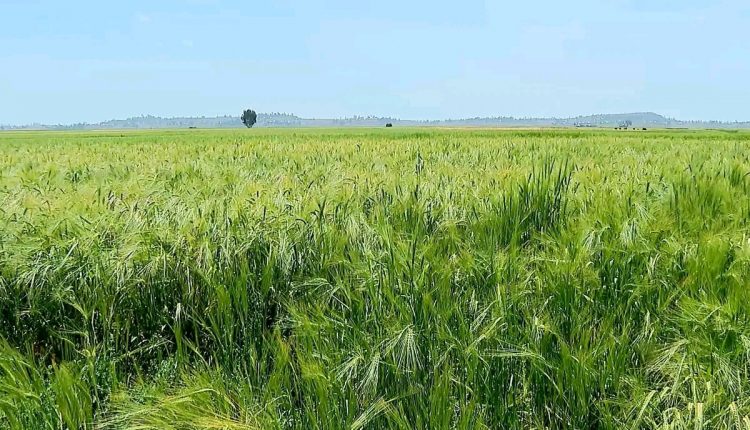Ethiopia’s effort to enhance agricultural productivity delivers tangible results
Addis Ababa, May 23, 2025 (FMC) — Ethiopia’s path to food self-sufficiency and its agricultural transformation endeavors have been driving tangible results, Government Communication Service (GCS) Minister, Legesse Tulu revealed.
Minister Legesse, along with a delegation of federal and regional officials, has visited the thriving summer irrigated wheat and barley farms cultivated on more than 200,000 hectares of land in the North Shewa Zone of the Oromia region.
The anticipated wheat and barley harvest in these Jida and Kibbit districts of the region, is expected to be close to 12 million quintals, it was indicated.
In an interview with ENA following the tour, Legesse underscored that Ethiopia is embarking on a transformative journey towards food sovereignty, shifting decisively from dependence to robust productivity.
He also emphasized the government’s firm commitment to the comprehensive homegrown economic reform policy.
Agricultural development, he stressed, stands as the bedrock of Ethiopia’s multi-sectoral growth strategy.
“Ethiopia is achieving remarkable strides in elevating agricultural productivity, particularly across vital crops such as wheat, barley, maize, teff, and rice,” he stated, adding, “We are witnessing tangible advancements: expanding arable land, significantly boosting yields per hectare, and extending our production seasons.”
The Minister emphasized Ethiopia’s groundbreaking success with summer-irrigated wheat, which has not only eliminated the need for wheat imports but has also paved the way for wheat exports to the global market.
Recalled Ethiopia previously imported a significant amount of wheat, estimated at around 1 billion USD annually. However, the country has made substantial efforts to increase domestic wheat production, and it has now largely meeting its wheat demands.
Minister Legesse characterized the progress observed in North Shewa Zone of Oromia region as nothing short of “remarkable.”
Areas that once relied on food aid are now tapping into their local ingenuity, cultivating irrigated crops for the market,” he elaborated, commending farmers who have masterfully employed indigenous knowledge to develop arable land by diverting river water for irrigation.
According to the minister, this exemplifies the potent impact of the country’s agricultural strategies.
For him, this unequivocally confirms Ethiopia’s trajectory towards achieving genuine food sovereignty and evolving from a dependent economy into a self-sufficient, productive powerhouse.
The Minister further emphasized the critical importance of harnessing agricultural potential nationwide to accelerate national development goals.
The government is assiduously working to fortify irrigation systems and water resource management, enhance essential services, supercharge productivity, and cultivate sustainable peace,” he stated.
The minister also emphasized that communities must embrace ownership of these initiatives to guarantee enduring peace and development.

